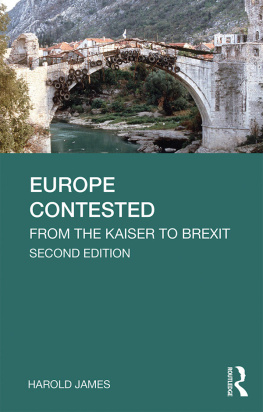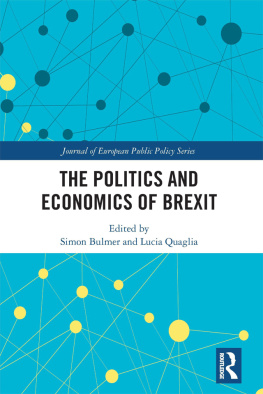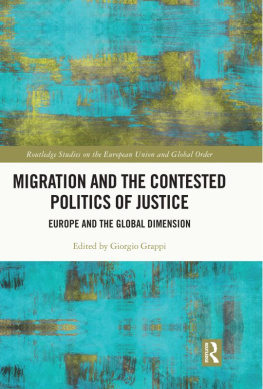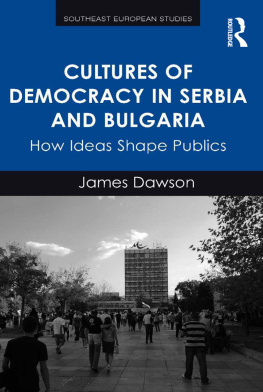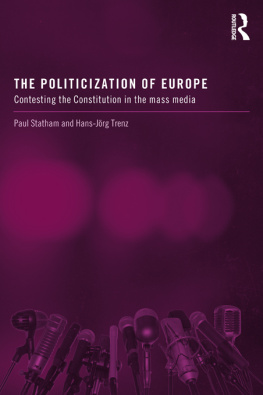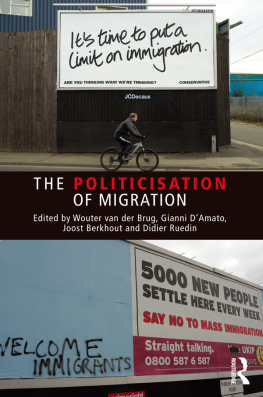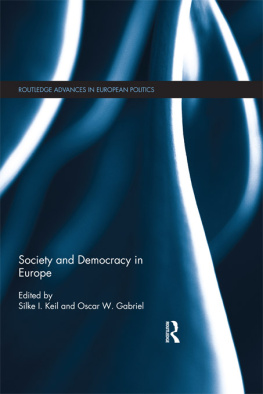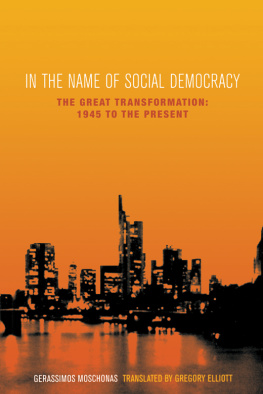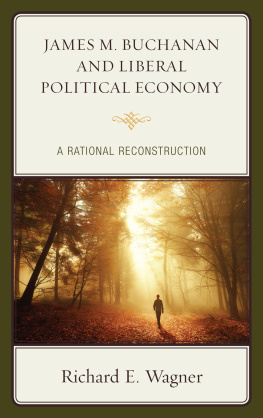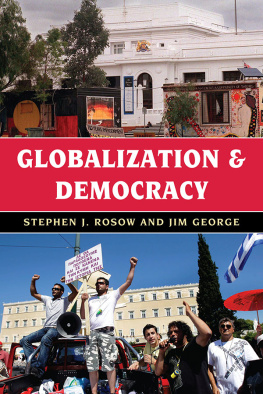Europe Contested
Europe Contested analyses the failures and achievements of an astonishing era of economic advance and political chaos, from the First World War up to the present day.
Beginning with the Great War, the book goes on to examine connections between the self-destruction of liberal democracy, market economics, and the international political and security framework in the interwar period. It then considers the mass politics that surrounded the glorification of new-style leaders Lenin, Stalin, Mussolini, and Hitler before moving on to explore the ways in which the interwar legacy was superseded post-1945. James examines the deceptive appearance of stability brought by a new convergence in European politics that focused around the market and the principle of liberal democracy, and demonstrates how the impact of globalization and openness to migration and to destabilizing financial capital flows has eroded traditional politics and ended the stable leftright polarization at the core of the postwar order. This new edition has been thoroughly updated throughout, demonstrating also how an era of crisis is challenging Europe and its values.
Supported by boxed case studies, illustrations, chronologies, and an annotated bibliography, and focusing on Europe as a whole, it is the perfect introduction for students of Modern European History.
Harold James is the Claude and Lore Kelly Professor in European Studies at Princeton University, USA. His books include The German Slump (1986), The End of Globalization (2001), and Making the European Monetary Union (2012).
Longman History of Modern Europe
In this series:
Europe 18501914
Progress, Participation and Apprehension
Jonathan Sperber
Revolutionary Europe 17801850
Jonathan Sperber
Europe Contested
From the Kaiser to Brexit
Harold James
For more information about this series, please visit: www.routledge.com/Longman-History-of-Modern-Europe/book-series/PEAMODE .
Europe Contested
From the Kaiser to Brexit
2nd edition
Harold James
Second edition published 2020
by Routledge
2 Park Square, Milton Park, Abingdon, Oxon, OX14 4RN
and by Routledge
52 Vanderbilt Avenue, New York, NY 10017
Routledge is an imprint of the Taylor & Francis Group, an informa business
2020 Harold James
The right of Harold James to be identified as author of this work has been asserted by him in accordance with sections 77 and 78 of the Copyright, Designs and Patents Act 1988.
All rights reserved. No part of this book may be reprinted or reproduced or utilised in any form or by any electronic, mechanical, or other means, now known or hereafter invented, including photocopying and recording, or in any information storage or retrieval system, without permission in writing from the publishers.
Trademark notice : Product or corporate names may be trademarks or registered trademarks, and are used only for identification and explanation without intent to infringe.
First edition published by Pearson Education Limited 2003
Second edition published by Routledge 2020
British Library Cataloguing-in-Publication Data
A catalogue record for this book is available from the British Library
Library of Congress Cataloging-in-Publication Data
Names: James, Harold, 1956- author.
Title: Europe contested : from the kaiser to Brexit / Harold James. Other titles: Europe reborn
Description: Second edition. | London ; New York, NY : Routledge/Taylor & Francis Group, 2020. | Revised edition of: Europe reborn : a history, 1914-2000. | Includes bibliographical references and index.
Identifiers: LCCN 2019022922 (print) | LCCN 2019022923 (ebook) | ISBN 9781138303065 (hardback) | ISBN 9781138303072 (paperback) | ISBN 9780429340680 (ebook)
Subjects: LCSH: EuropeHistory20th century. | EuropeHistory21st century.
Classification: LCC D424 .J27 2020 (print) | LCC D424 (ebook) | DDC 940.5dc23
LC record available at https://lccn.loc.gov/2019022922
LC ebook record available at https://lccn.loc.gov/2019022923
ISBN: 978-1-138-30306-5 (hbk)
ISBN: 978-1-138-30307-2 (pbk)
ISBN: 978-0-429-34068-0 (ebk)
Typeset in Sabon
by Swales & Willis Ltd, Exeter, Devon, UK
I should like to thank the following for helping me with individual points of information, for reading parts of the manuscript, and for helpful suggestions: Michael Bordo, Cynthia Hooper, Molly Greene, Stephen Kotkin, and Arno Mayer. David Childs, Marzenna James, Philip Nord, Hamish Scott, and Richard Vinen gave insightful comments on the whole manuscript. Heather McCallum at Longmans was an inspiring and helpful editor. Judy Hanson of the Princeton History Department helped me enormously by organizing time and assistance, and Alicia Pittard did a wonderful job in researching individual questions and organizing biographical and chronological information. The usual caveat applies: none of my friends is responsible for remaining errors of fact or for problematical arguments.
The process of thinking about history is accompanied by numerous, indeed endless, discussions. I should like to record my gratitude to an exceptional and inspirational group of teachers in the Cambridge of the 1970s, who helped to shape my view of Europe: John Tanfield of the Perse School, and Christopher Andrew, the Rev. Owen Chadwick, the Rev. Dermot Fenlon, Neil McKendrick, Edward Shils, Jonathan Steinberg, and Norman Stone of Cambridge University. When I came to Princeton in the 1980s, Cyril Black and Arno Mayer were giving lucid and innovative accounts of Europes twentieth century.
I would also like to thank friends and colleagues with whom I have discussed European affairs in a number of institutions at which I have stayed as a guest or worked over the past fifteen years: Claudio Borio, Piet Clement, and Hyun Song Shin, at the Bank for International Settlements; Hans Werner Sinn and Clemens Fuest at CES-ifo Munich and at the European Economic Advisory Group; Melanie Aspey, Hugo Bnziger, Catherine Schenk, Niels Viggo Haueter, at the European Association of Banking and Financial History; Sebastian Conrad, Giancarlo Corsetti, Giovanni Federico, Tony Molho, Emanuel Mourlon-Druol, Kiran Klaus Patel, and Bartolom Yun Casalilla, at the European University Institute, Fiesole; Tam Bayoumi, Rex Ghosh, Martin Muhleisen, and Siddharth Tiwari, at the International Monetary Fund; Knut Sogner at the Oslo Business School (BI); Bridget Kendall and Brendan Simms at Peterhouse, Cambridge; and Stephen Szabo of the Transatlantic Academy of the German Marshall Fund.
The book is dedicated to Marzenna James, to whom I am lucky enough to be married, and to Maximilian, Marie Louise, and Montagu James.
Harold James, Princeton University, September 2019
I was especially pleased when the editors of this series asked me to write this volume, as the first book written by a practicing historian I ever bought was that of John Roberts, Europe 18801945 , published in 1967, which previously closed the Longman series on the history of Europe. Roberts began his book by remarking that One big difference between ourselves and our predecessors centuries ago, is our acceptance of historical change (p. 1). One of the reasons that I found writing this book to be a novel challenge is that this proposition is no longer self-evident. We are certainly as aware of change as the generation writing in 1967 was, but we are much more worried about it. We are painfully aware of the cost of change, but also of the cost of refusing to change. We are skeptical of simple ideologies of progress, which are now frequently cast off as outdated, or even demonized as the Enlightenment master narrative. Anti-modern ideologies have fared even worse. The result of disenchantment with linear versions of history (either progressive betterment, or alternatively deterioration from a golden age) has led many intellectuals and academics to adopt a potpourri of disconnected snippets that subvert any coherent picture and call it postmodernism. Some recent attempts at an overall history of Europe, such as the illuminating book by Richard Vinen, A History in Fragments (2000), aim deliberately at showing that modernity produces division and fractionalization, and that there is no coherent master narrative. Mark Mazowers brilliant Dark Continent: Europes Twentieth Century (1998) puts a needed spotlight on the underside of European existence.

